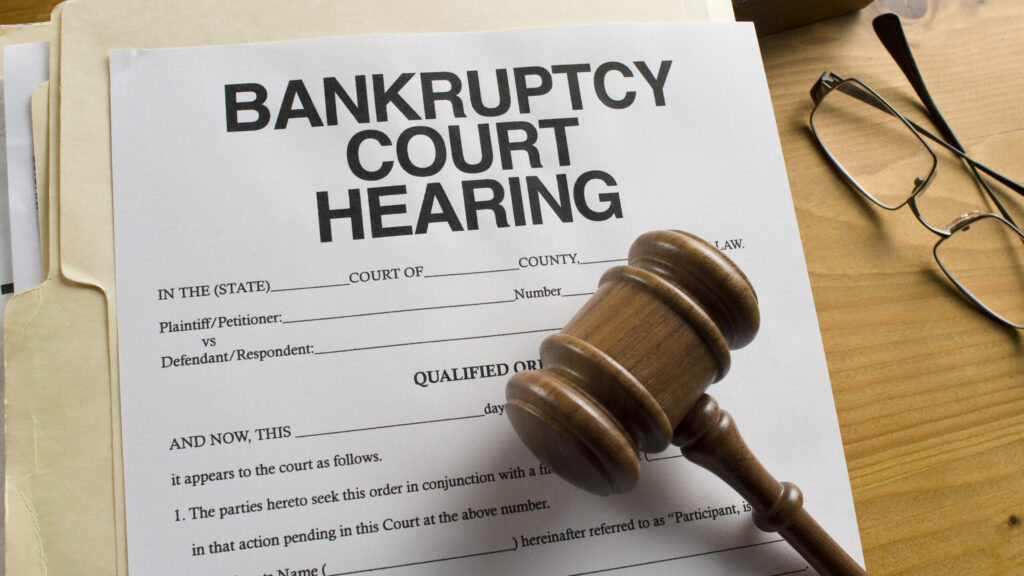Bankruptcy is often seen as a last resort for individuals struggling with insurmountable debt. However, filing for Chapter 7 bankruptcy can offer several benefits that provide a fresh financial start. This article explores these advantages.
Discharge of Unsecured Debts
The most significant benefit of Chapter 7 bankruptcy is the discharge of unsecured debts. This means that debts like credit card balances, medical bills, and personal loans can be wiped out, freeing the debtor from these financial obligations.
Automatic Stay Protection
Upon filing, an automatic stay comes into effect, immediately halting most collection actions against the debtor. This stay can stop harassing phone calls, wage garnishments, and pending lawsuits related to debts, providing a much-needed respite for the individual.
Chapter 7 bankruptcy proceedings are relatively quick, often completed within 3 to 6 months. This speedy process allows debtors to eliminate their debts and start rebuilding their financial life in a relatively short time frame.
Asset Retention
Contrary to popular belief, Chapter 7 bankruptcy does not necessarily mean losing everything. Exemptions under federal or state law allow debtors to keep essential assets such as a primary residence, vehicle, and personal belongings.
Improved Credit Over Time
While bankruptcy initially impacts credit scores negatively, it can pave the way for improved credit in the long term. Without the burden of overwhelming debts, debtors can rebuild their credit more effectively than if they continued struggling with unpaid bills.
No Minimum Debt Requirement
Chapter 7 bankruptcy does not require a minimum debt amount, making it accessible for individuals with varying levels of debt.
Psychological Relief
The psychological impact of mounting debt and constant pressure from creditors can be immense. Filing for bankruptcy can offer a sense of relief and a chance for a new beginning, improving mental well-being.
Opportunity to Rebuild Finances
Bankruptcy provides a structured framework for individuals to reset their finances. Post-bankruptcy counseling and education courses can equip debtors with valuable financial management skills.
No Limitation on Filing for Debts Incurred
Individuals can file for Chapter 7 bankruptcy regardless of how their debts were incurred, as long as they meet the eligibility criteria, offering a solution for various financial situations.
Filing for Chapter 7 bankruptcy can be a pivotal step towards financial recovery for those drowning in debt. It offers the chance to eliminate unsecured debts, stops creditor harassment, and allows individuals to keep key assets while rebuilding their credit. Though it has its downsides, such as impacting credit scores, the benefits can be life-changing for those in dire financial straits. It’s always recommended to consult with a bankruptcy attorney to understand the full implications and ensure this is the right path for one’s specific financial situation.
Navigating the Road Ahead
While the decision to file for Chapter 7 bankruptcy should not be taken lightly, understanding its potential as a tool for financial rebirth is crucial. Here are some additional points to consider:
Strategic Financial Planning Opportunity
Filing for bankruptcy is not just about debt elimination; it’s a chance to strategize for the future. With debts discharged, individuals can focus on budgeting, saving, and planning for long-term financial goals without the burden of past debts.
Access to Credit in the Future
Contrary to common fears, obtaining credit after bankruptcy is possible. While initially challenging, many individuals find that they can start rebuilding their credit soon after the discharge. Secured credit cards and loans with higher interest rates are often the first step in this process.
Learning From Past Mistakes
Bankruptcy can be an educational experience. It forces individuals to confront financial missteps and, with the help of mandated financial management courses, learn how to avoid them in the future.
Social Stigma Diminishing
The social stigma around bankruptcy is fading, as more people understand it as a legitimate financial tool for those in need. This changing perception helps reduce the emotional and psychological burden on filers.
Potential to Increase Disposable Income
Post-bankruptcy, many find that without the weight of unsecured debts, they have more disposable income. This increase can be channeled into savings, investments, or simply enjoying a better quality of life.
Greater Control Over Finances
Finally, bankruptcy offers a chance to take control. It’s an opportunity to reset, reevaluate, and rebuild financial habits that lead to a more stable and secure financial future.
Making the Decision
While the benefits of Chapter 7 bankruptcy are clear, it’s not a decision to make lightly. Prospective filers should consider all factors, including the impact on credit, the types of debts discharged, and the personal and emotional implications. Seeking advice from a financial counselor or bankruptcy attorney can provide clarity and guidance through this complex process.
Chapter 7 bankruptcy can provide a lifeline for those overwhelmed by debt. It offers a clean slate, psychological relief, and the chance to rebuild a more secure financial future. While it comes with its challenges and should be approached with care, for many, it’s a decisive step towards financial freedom and stability.
Frequently Asked Questions about Chapter 7 Bankruptcy
Will I lose all my property if I file for Chapter 7 bankruptcy?
No, not necessarily. While Chapter 7 is a liquidation bankruptcy, many types of property are exempt from being sold to pay creditors. These exemptions vary by state but often include your primary residence, automobile, personal belongings, and retirement accounts.
How long does a Chapter 7 bankruptcy stay on my credit report?
A Chapter 7 bankruptcy can remain on your credit report for up to 10 years from the date of filing. However, its impact on your credit score diminishes over time, especially if you adopt good credit habits post-bankruptcy.
Can I discharge all types of debt in Chapter 7 bankruptcy?
No, not all debts can be discharged. Non-dischargeable debts include most tax debts, student loans, child support, alimony, and fines or penalties owed to government agencies.
How often can I file for Chapter 7 bankruptcy?
You can file for Chapter 7 bankruptcy once every eight years. It’s crucial to consider this limitation when deciding if and when to file.
Is it possible to keep my home and car after filing for Chapter 7 bankruptcy?
It depends on several factors, including the equity in these assets and your state’s exemption laws. If the equity in your home or car is fully exempt, and you’re current on your payments, you may be able to keep them.
How does filing for bankruptcy affect my spouse?
If you file individually, the bankruptcy shouldn’t directly affect your spouse’s credit. However, if you have joint debts, the non-filing spouse may still be responsible for those. It’s important to understand how your state views marital property in bankruptcy.
Can I get rid of student loans through Chapter 7 bankruptcy?
Generally, student loans are not dischargeable in bankruptcy. However, if you can prove that paying your student loans would cause undue hardship, there might be an exception.
What happens to my credit cards when I file for Chapter 7 bankruptcy?
When you file for Chapter 7 bankruptcy, you will likely have to surrender all credit cards. After your bankruptcy is discharged, you can start rebuilding your credit, often beginning with secured credit cards.
How much does it cost to file for Chapter 7 bankruptcy?
The cost includes court filing fees, attorney fees, and credit counseling fees. The exact amount varies depending on your location and the complexity of your case.
Can I file for Chapter 7 bankruptcy without a lawyer?
While you can file for bankruptcy without a lawyer, it’s not recommended due to the complexity of bankruptcy law and the potential risks of not fully understanding the legal process.
Bankruptcy, particularly Chapter 7, is a complex legal process with significant financial implications. These FAQs provide a basic understanding, but consulting with a qualified bankruptcy attorney is crucial to navigate this process effectively. Remember, every financial situation is unique, and what applies to one individual may not apply to another.






